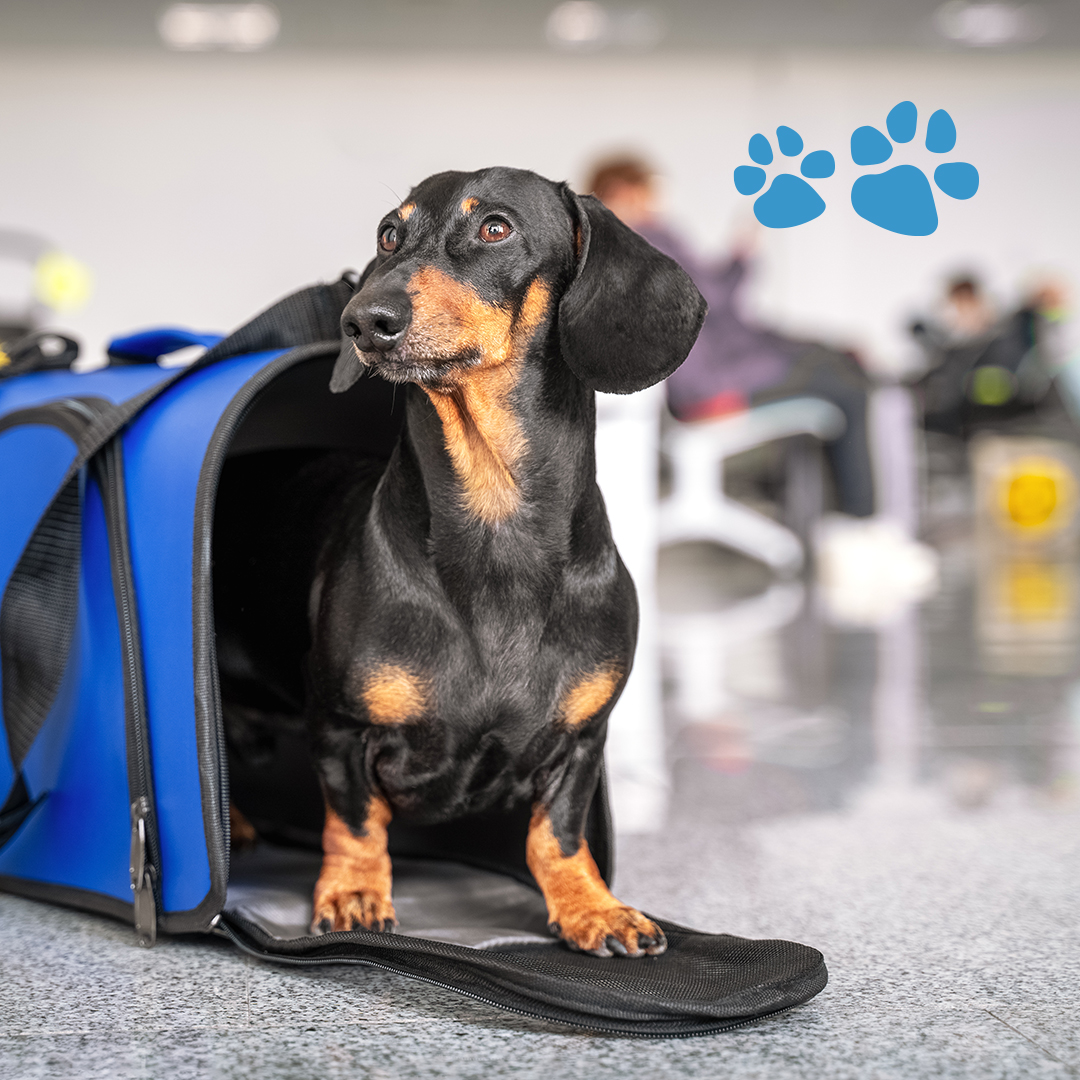Four Tips for Pet Preparedness in the Face of Diasters

We are officially amid hurricane season here on the Atlantic coast.
And if you don't already have a pet emergency kit and disaster preparedness plan in place, you need one. It's not easy to think about the worst-case scenarios, but having a plan could make the difference in keeping your pets safe.
Here are four tips for pet preparedness in the face of natural disasters.
Create a Pet Evacuation Plan
When it comes to natural disasters, every minute counts, especially if you must evacuate. Be sure to include your pet in your evacuation plan so you know where you can go in the event of an emergency.
Identify pet-friendly evacuation shelters in advance so you can stay together. If there aren't any shelters, other options might include:
- Your veterinarian's office
- Local animal shelters
- Pet-friendly hotel
- Boarding facilities
- A trusted relative's or friend's house
The important thing is to have several options outlined in your plan. This way, you don't waste time making frantic calls when it's too late. In addition, keeping your pets' medical records handy is crucial since some pet-friendly emergency relief centers require proof of vaccinations for your pet to stay there.
Ensure Your Pet Is Up to Date on Vaccinations and Other Medical Requirements
Your pet should have at least one vet visit per year, and it's essential you stay consistent with these appointments. Schedule their checkup and vaccinations all at the same. This will help you understand where your pet's health is and provide education on how to keep them healthy.
In addition to keeping them healthy, if disaster strikes, you won't have to worry about them not being able to go somewhere safe because they aren't up to date on their vaccinations, or you are out of flea medicine. Contact us today to make an appointment for a wellness visit.
Pet Emergency Kit Checklist
Your pet emergency kit will vary depending on what kind of pet you have, but it could include:
- One to two weeks' worth of your pet's food
- Bottled water
- Collapsible food and water bowls
- Blankets
- Cat litter and pan
- Leash, collar, and harness
- Pet life jacket
- Flashlight with extra batteries
- Basic pet first-aid kit
- Vaccination records and medical history
- Veterinarian's contact information
- List of medications
- Emergency contacts
- A favorite toy
- Photos of your pet in case of separation
Ensure your pet has a secure collar with current identification tags in case of separation. Pet owners should also have their pet microchipped to ensure they can be identified and found if separated or lost.
Create a Buddy System
Not only should you have a plan to evacuate with your pets, but you also need a plan if something happens while you're away. You can prepare for this by asking a trusted neighbor, relative, or friend willing to check in on your pet. Make a plan to do the same for theirs so you can help each other in a time of crisis.
Add this caregiver to your emergency contact list as someone who's authorized to approve emergency medical care in your absence. Be sure to alert your "buddy" to the location of your pet emergency kit should disaster hit while you're out of town.
For more information and guidance on pet preparedness tips, contact the staff at College Road or Carolina Beach Animal Hospital today!

